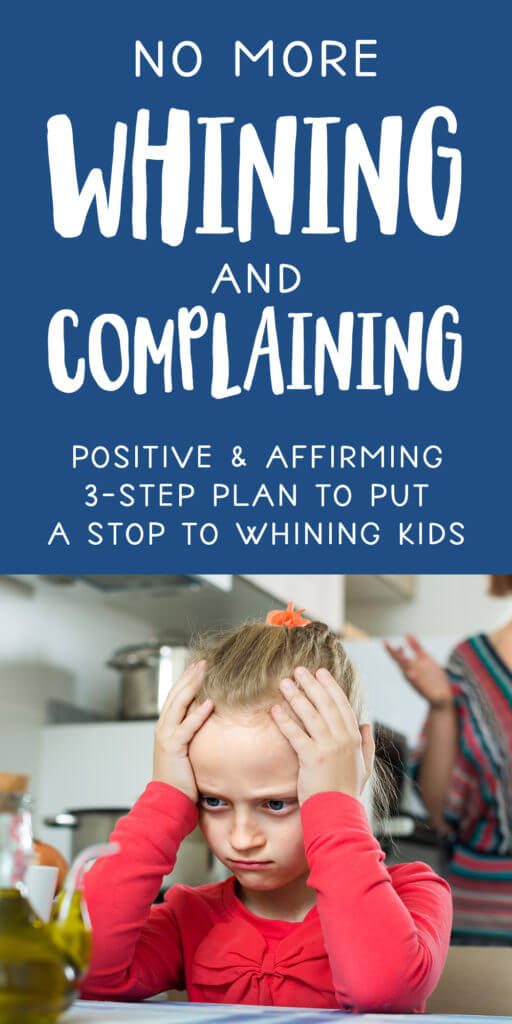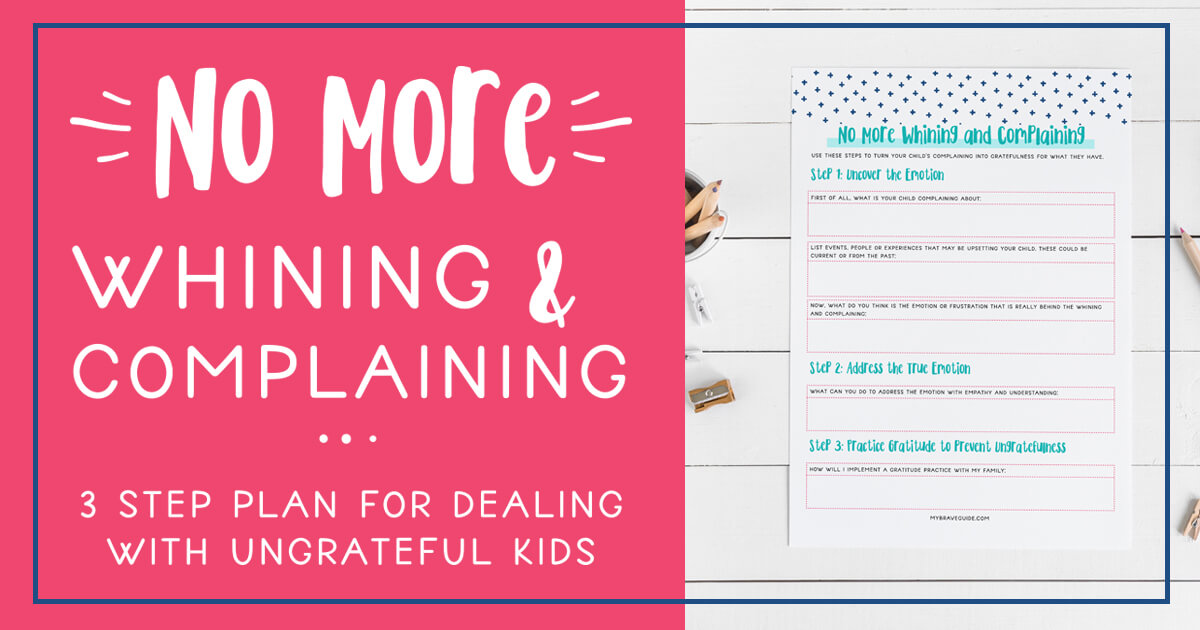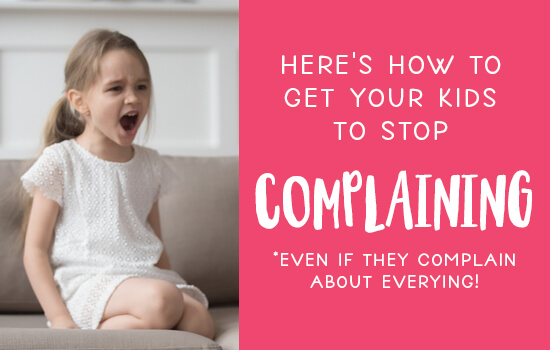My 7 year old son has been begging for a Nintendo Switch since it first came out. He was recently gifted the console and a game from his Uncle. He was so excited… for about a day. Then, he started focusing on needing more games and more time to play.
He had some money saved up, so we let him buy a few new games. Again, he was super happy for about a day. Then started feeling frustrated again because he felt like he needed more games and endless time to play.
Does this struggle of having your child never feel satisfied sound familiar?
There is nothing more frustrating than hearing, “there’s nothing to do!” or, “I’m bored!” from your child while being surrounded by toys, games, and electronics.
Dealing with Whining and Complaining is Frustrating

Today’s culture has developed an acute state of feeling like no matter what you have, it is not enough. This leads to an overwhelming sense of unhappiness and ungratefulness. As parents and providers for our children, hearing them express how unsatisfied they are can be maddening.
When faced with these types of situations, our gut reaction is often to feel frustrated and even angry. It is easy to say to yourself, “I have given them so much – exactly what they wanted – and yet, they are never satisfied!”
The problem is, giving them more doesn’t help. Trying to argue them into being grateful for what they have doesn’t work. And, ignoring these types of statements often leads to children escalating their behavior to gain more attention.
Here’s the 3 step plan that I use to address whining and complaining
Step 1: Figure out the emotion under the “I Want”
If you are anything like me, as soon as you hear your child start to whine or talk about not having what they want, you immediately feel frustrated. You may even say things like, “You have all of these new games, why can’t you just play those!” Or, something like, “Hey, I just bought you all of this, why can’t you be happy with what you have!”
The problem with this immediate response is that it just doesn’t work! How often have you said something like that and had your kid say, “You know, you’re right, you did just buy me 3 new games, I will go play those!” No, instead, your child probably digs their heels in harder and whines louder!
The reason responding with frustration doesn’t work is that it is not addressing the emotion that your child is having. When your child is whining and complaining, they are working at getting your attention. This is because something is wrong for them in that moment.
They truly are feeling something big and don’t know how to express it. Whining and complaining is often the best that they can do at expressing their big emotions.
It is our job as parents to become detectives and figure out what is truly going on. Then we can address the true problem, rather than respond from frustration over the whining, demanding, and/or ungratefulness.
Learning to Listen to Our Kids
Learning to listen and not just react can be a tough challenge. It takes practice and time! I have a whole course that helps you and your child learn better listening skills. This can be really helpful if you feel like this is an area that either of you struggles with. Check out the Be Heard Method here.

Uncovering the Hidden Messages in Whining and Complaining
For now, let’s talk about one method that can help you listen better. This method will also help you start to uncover those hidden emotions and messages.
When your child starts whining, stop, take a deep breath, and think through what is going on in the moment. Sometimes it is actually pretty obvious. For example, my older son often talks about missing his friends from Seattle. He will whine about how he just wants to move back.
When I hear this, I immediately get frustrated. The reason we moved to Texas was to be in a community where he could have lots of friends. When he says he wants to move back, I think he is being ungrateful for all he has here. Instead, his underlying message is really that he is missing his old friends. He doesn’t know what to do with that emotion. The only way he knows to express it is to complain about the current situation.
Other times, it takes a bit more detective work and maybe even some trial and error. And, to be honest, you may need to step away from the situation to calm down. To allow yourself to think about what could be going on underneath the whining, complaining, and expressions of wanting more.
Often times children are asking for time, attention, love, and reassurance. This can bubble up in them when they face struggles at school or with friends. It can happen when they are facing a transition or when their family is facing a tough time. They may be having problems with their siblings or with a parent or other trusted adult.
Expressing these kinds of big emotions can be really scary for kids (and, let’s face it, even for adults!) That’s why we hide them by whining and complaining.
Step 2: Address the True Emotion
Once you have figured out what is really going on under the whining, work on addressing the emotion or need. Sometimes this just requires us to show empathy and understanding.
For example, my older son really needs me to let him know that I understand that he misses his friends. I know how hard that is, and I am willing to be sad with him about missing something so good.
In fact, when he starts talking about hating Texas, if I respond with an empathetic response such as, “I understand how you feel, I really miss some things about Seattle too and it makes me really sad which feels hard to deal with.” This usually opens a conversation and allows us to work past the whining. An empathetic response also allows me to model and teach him how to deal with the sadness that comes from missing things you no longer have.

Other times, addressing the emotion requires more actions than words in order to create a safe space. For example, if a child is struggling with making friends their frustration may come out as complaining about being bored. In order to get to the problem (having no friends), you may need to spend time engaging your child in play. This builds their trust so that they start talking about what is really going on.
Spending focused time just playing with your child can create that safe environment that allows kids to start opening up.
It is important to note that your child may not bring up what is really going on during your playtime. Sometimes kids just need the reassurance that comes from spending time with a parent. They need to be shown that they are worth attention, time, and love. Filling that void (even if you don’t completely know what you are filling) can help lessen the whining and complaining.
Step 3: Practice Gratitude to Avoid Future Frustrations
One of the best ways to fight off recurring ungratefulness in kids is to make being grateful a regular practice in your family. You can do this by each sharing 3 things that you are grateful for about your day at the dinner table or at bedtime.
I also have a free mini workbook on gratitude for families called The Little Brave Guide to Gratitude. You can download it in the Parenting Resource Library.

The important part of developing and using gratitude is that you need to PRACTICE gratitude. Find a time and a way that works for you and stick to it.
Research shows that over time you will find that your children start to have fewer feelings of neediness, and unfulfilled desire.
Working Through the 3 Steps to Get Rid of Whining and Complaining
I have a handy worksheet available in the Parenting Resource LIbrary that will help you work through the 3 steps we just learned:
- Figure out the emotion under the want
- Address the true emotion
- Practice gratitude.
While using these three steps is not always a quick fix, eventually it becomes much easier and quicker to get to those true emotions. The more that you are in tune with your child’s true struggles, the less whining and complaining you will have about little things like device time or being bored.

